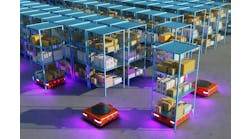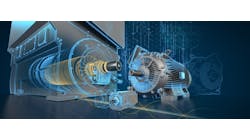Irving Oil is an energy company operating a large, sour-crude-capable refinery in St. Johns, New Brunswick—Canada's largest refinery—producing refined products primarily for export to New York Harbor. At a workshop in October, Irving's Mark Porter—a 25-year veteran of its operations department—presented his refinery's progress in the area of "operator-driven reliability." In his report, he braces himself for flying vegetables when he claims, "Operators can have a bigger impact on asset reliability than our maintenance department." Porter demonstrated that when operators are trained and take ownership of the assets they use, they can achieve as much or more than any measure of preventive, proactive or predictive maintenance.
I know of more than a few maintenance and reliability specialists who have long ago given up on operations becoming accountable for their assets. They're somewhere between dismay and disdain, especially when it comes to operations taking ownership and caring for the physical assets they use in the production of saleable product. In a lot of organizations, the most senior operators bid off the unit for a "day job" in maintenance, leaving behind their young and less-experienced brethren. Should we be shocked that there are instances where equipment gets broken or breaks down prematurely because it's been operated or put in service incorrectly? Weary of fixing the same things repeatedly, instead we dream of bulletproof equipment no operator can break. Maintenance becomes the mythical fellow pushing the rock that never gets up the hill, or he gets squished when it rolls back over him.
[pullquote]Whether we feel like Sisyphus or not, deep down, I think we all understand operations really is in the best position to improve reliability. The idea is really pretty simple. If you know your car needs oil and you drive it anyhow, is it your mechanic's problem that it breaks down? But, imagine you're a parent who's trying to get your teenage sons or daughters to drive the family car mindfully and pay attention when the trouble lights come on. Changing a culture of "drive it into the ground" to one of ownership/stewardship can seem next to impossible.
Twenty-five years ago I sat in a week-long seminar conducted by Bill Tillman, a veteran of DuPont. Tillman's message that week was that maintenance and operations needed to stop being adversaries, and start figuring out how to communicate and help each other. But today's plants are turning over the generation of adversarial pessimists to a younger demographic. These "newbies" might be happy to step into the role of pilot/captain, crew and caretaker. Do our organizations have the vision to support people like Porter who are positioned to shape a new way of operating? It sounds to me like Irving Oil is doing it.
Porter spent a year or two studying, interviewing, developing and training. For two pilot projects at Irving's Crude Unit and FCC, he's involved about 70 of 300 salaried operators. He's been able to redefine their roles, emphasizing housekeeping, communication, standardized rounds and thoughtful, thorough procedures. He also exploits some jazzy technology, such as wireless PDA's that load centrally stored guides for standardized operator rounds and checklist-guided forms for isolation and preparation of equipment for maintenance. In a year his pilot program has claimed $200,000 in reduced maintenance costs.
Irving's project has focused on large assets such as pumps, compressors and exchangers. But once the culture of focus and caring becomes the norm, operators are going to want to use the relevant data from digitally integrated measurement and control devices. Is it unrealistic to aim for one individual per operating crew who gets trained and proficient on instrumentation asset management? Future shift teams are likely to be more like Irving Oil's. Whether we use HART, Profibus or Foundation fieldbus, shouldn't we be championing an infrastructure to deliver instrumentation asset management as well?





